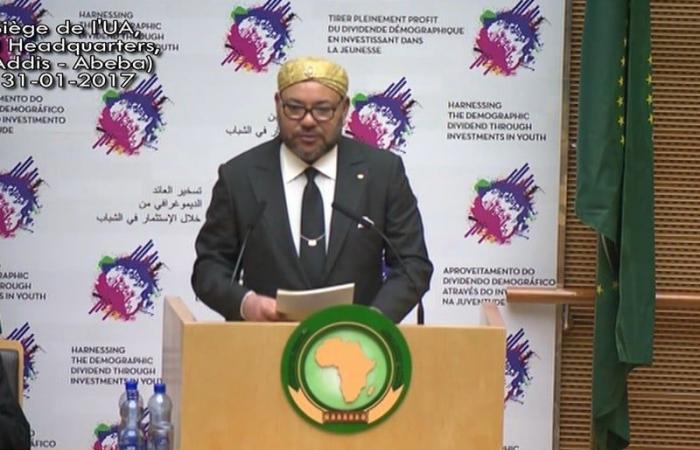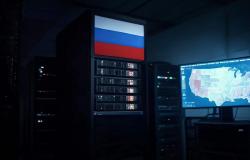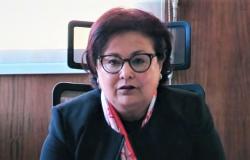By embracing the causes of national liberation movements, Morocco has built strong alliances in Africa. This strategic positioning has allowed the Kingdom to become a key player on the continent, reworking international relations in the light of the Sahara issue, said a study published by Lixus magazine in its January 2025 issue.
As part of their engagement with the international arena, States are inevitably confronted with a complex mosaic of crises and issues, requiring considered positions from them, shaped by a set of both internal and external determinants. Internal determinants encompass the intrinsic characteristics of each nation, such as the structure of the political system, economic and financial robustness, as well as military capacity. These elements deeply influence the decision-making mechanisms in matters of foreign policy, explained the author of the study entitled “Morocco’s African policy and its impact on the position of African countries regarding the Moroccan Sahara conflict”, Abdelaziz Ait Kacha. .
At the same time, external determinants relate to the specific nature of the crisis in question, to the dynamics of relations maintained with the parties involved in the conflict, and to the overall geopolitical context which prevails. These external factors impose a need for strategic adaptation on States, forcing them to calibrate their positions according to developments in the international scene and potential alliances.
The Sahara conflict constituted a crucial test bed for these strategic determinants. Morocco has undertaken to structure its international relations, both at the global level and with African nations in particular, according to their posture vis-à-vis the Sahara issue, he said.
« This conflict, born in the 1970s, coincided with multiple regional and international changes marked by the proliferation of liberating discourses based on the right of peoples to self-determination, and the accession to independence of many African and Asian countries. following this principle. Therefore, many perceived this conflict as a struggle between a Western-oriented expansionist state and an oppressed people fighting a battle for their independence, which influenced many countries’ stance on the conflict.“, indicated the researcher.
He said that the ability of the Polisario Front to amplify its voice on the African continent during the initial phases largely depended on the substantial and direct support of the Algerian and Libyan regimes. However, this dynamic has proven to be transitory, because international relations are subject to developments dictated by circumstances and various determinants. Thus, at the beginning of the 1990s, a change in these parameters led to a reorientation of the positions of African states regarding this conflict. This has led to an erosion of support for the Polisario within African capitals, while offering Moroccan diplomacy a window of opportunity to transcend the obstacles of the initial phase, consolidate its ties with African nations, and encourage them to reconsider their position on the said conflict.
By exploring the development of Moroccan-African relations, the researcher illustrated how, from the first years following independence, Morocco clearly defined its positioning vis-à-vis Africa. The Kingdom has been tirelessly committed to renewing and revitalizing its ties with this continent, actively supporting national liberation movements across many African countries. He clarified that the question of territorial integrity remained a pivotal factor, guiding Moroccan foreign policy towards Africa at each post-independence stage.
The author of the study also underlined the strategic choice of Morocco, which, after independence, turned towards strengthening its political and economic alliances with progressive African states. This choice has raised many questions about Morocco’s direction, particularly because, as a moderate nation, it could be more naturally aligned with conservative African states, sharing historical affinities in a context of ideological fissure prevailing in Africa. post-colonial.
The researcher clarified that the positions of progressive African nations, to which Morocco turned, placed fierce opposition to the colonial powers. These countries requested support for the liberation movements still fighting for their independence and campaigned against all forms of colonial imperialism, while strengthening Afro-Soviet relations. Figures like Kwame Nkrumah, president of Ghana, and Patrice Lumumba, president of Congo, stood out as undisputed leaders of this movement.
In this perspective, Morocco has concretized its revolutionary orientation through a set of political and military initiatives. Notably, he intervened militarily under the aegis of the United Nations at the request of Lumumba to counter the separatist movement of Moïse Tshombe in Congo.
Furthermore, Morocco played a key role in the founding of the Casablanca Group in January 1961, designed as a political framework for progressive African states seeking to coordinate and unify their positions in the face of international and regional crises, and to cement a increased cooperation towards African unity.
« Morocco’s withdrawal from the Organization of the African Union in 1984 marked the end of a negative phase in Rabat’s relations with Africa. Therefore, it was natural that Morocco’s changes to its African policies since then would play a role in prompting countries to review their positions on the Sahara conflict. This withdrawal of Morocco from a political obstacle that it considered to be the only determinant allowed it to open up to many African countries, where it made great efforts to intensify the cooperation process. This has led many of these countries to reassess the Sahara conflict and to take, in most cases, decisions favorable to the territorial integrity of the Kingdom“, concluded the researcher.






